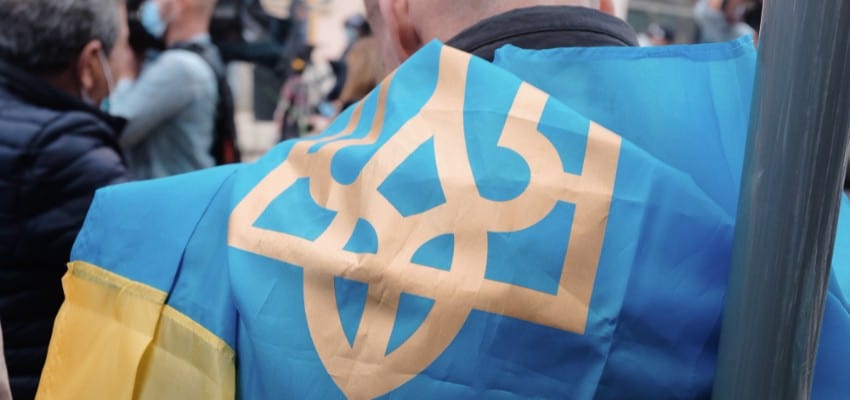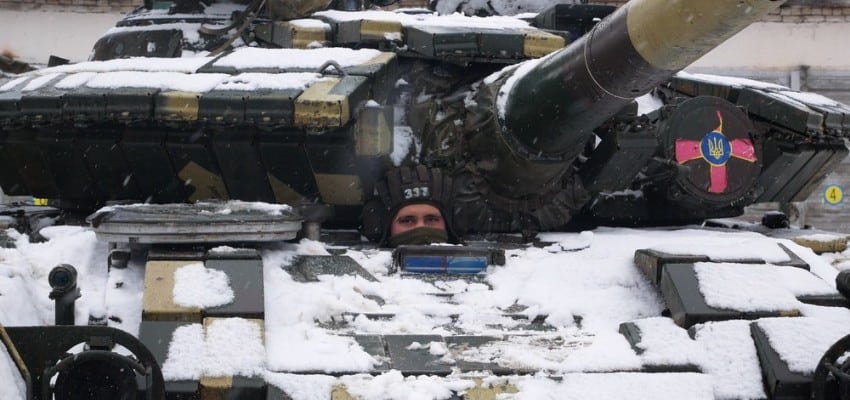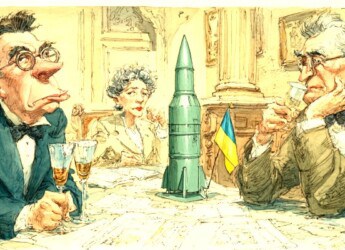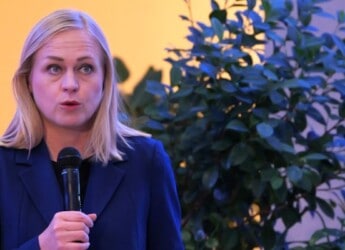|
|
Content Assessment: Ukraine Conflict Assessment: Update from the Institute for the Study of War (March 5-6, 2022)
Information - 94%
Insight - 95%
Relevance - 95%
Objectivity - 94%
Authority - 77%
91%
Excellent
A short percentage-based assessment of the qualitative benefit of the post highlighting the recent Ukraine conflict update from the Institute for the Study of War.
Editor’s Note: One of the most accurate and detailed sources for ongoing updates on the Ukraine crisis is the Ukraine Conflict Update from the Institute for the Study of War. The Institute for the Study of War (ISW) is a 501(c)(3) organization and produces strictly non-partisan, non-ideological, fact-based research. ISW seeks to promote an informed understanding of war and military affairs through comprehensive, independent, and accessible open-source research and analysis. ISW’s research is made available to the general public, military practitioners, policymakers, and members of the media. While providing a daily synthesis of key events related to the Russian aggression against Ukraine, information from the updates may be beneficial for cybersecurity, information governance, and legal discovery professionals as they follow the business, information technology, and legal trends and trajectories impacted by the current Ukraine conflict.
Assessment*
Ukraine Conflict Update – March 5-6, 2022
- Institute for the Study of War (ISW), Russia Team
- Critical Threats Project (CTP), American Enterprise Institute
Specific Update Background Info
- ISW published its most recent Russian campaign assessment at 2:00 pm EST on March 6.
- This daily synthetic product covers key events related to renewed Russian aggression against Ukraine.
Key Takeaways March 5-6
- Russian forces spent the past 24 hours largely regrouping and preparing to renew offensive operations around Kyiv, Kharkiv, and Mykolayiv.
- The Ukrainian General Staff reports the presence of a large concentration of Russian forces west of Kharkiv that it assesses will launch a wide offensive southwest toward the Dnipro River, although no such offensive has begun as of this publication.
- Russia violated two Russian-Ukrainian ceasefire agreements, collapsing efforts to establish a humanitarian corridor to help evacuate civilians from Mariupol and Volnovakha on March 5 and 6.
- Russian President Vladimir Putin has not demonstrated any willingness to de-escalate with Ukraine or the international community, nor has he provided reasonable demands that would lay the groundwork for de-escalation or negotiations.
- The Kremlin is likely laying the domestic information groundwork for a declaration of martial law in Russia should Russian President Vladimir Putin decide that mass mobilization and conscription are necessary to achieve his objectives.
- Russian President Vladimir Putin allowed for the confiscation of assets belonging to “corrupt” Russian officials on March 6, likely to acquire new revenue streams at the expense of alienating some supporters.
- The Kremlin is attempting to deter US or European bans on Russian oil exports by claiming that a ban would devastate world oil markets.
- Russian President Vladimir Putin compared Western sanctions to a “declaration of war” on March 5 as the Kremlin began to retaliate against foreign businesses.
Situation Map: Assessed Control of Terrain in Ukraine and Main Russian Axes
Read the original complete update.
* Shared with direct express permission from the Institute for the Study of War (ISW).
About the Institute for the Study of War Research Methodology
ISW’s research methodology relies on both primary and secondary sources, enabling researchers to develop a comprehensive understanding of the situation on the ground. In order to analyze military and political developments in any given area, ISW’s research analysts must wholly understand the systems of enemy and friendly forces. They must also understand the population demographics, physical terrain, politics, and history of that area. This lays the analytical foundation for understanding the reasons for particular developments and fulfilling their assigned research objectives. ISW analysts also spend time in places like Iraq, Afghanistan, and elsewhere in order to gain a better understanding of the security and political situation and to evaluate the implementation of current strategies and policies. Our researchers compile data and analyze trends, producing a granular analysis of developments in areas of research, producing an accurate, high-resolution, timely, and thorough picture of the situation. ISW’s research methodology guarantees its success and commitment to improve the nation’s ability to execute military operations, achieve strategic objectives, and respond to emerging problems that may require the use of American military power.
About the Institute for the Study of War
The Institute for the Study of War advances an informed understanding of military affairs through reliable research, trusted analysis, and innovative education. We are committed to improving the nation’s ability to execute military operations and respond to emerging threats in order to achieve U.S. strategic objectives. ISW is a non-partisan, non-profit, public policy research organization. Learn more, get involved, and contribute today.
Additional Reading
- [Annual Update] International Cyber Law in Practice: Interactive Toolkit
- Data Embassies: Sovereignty, Security, and Continuity for Nation-States
Source: ComplexDiscovery


























